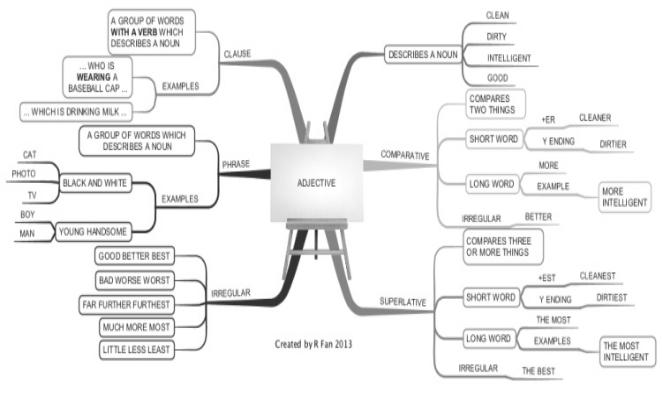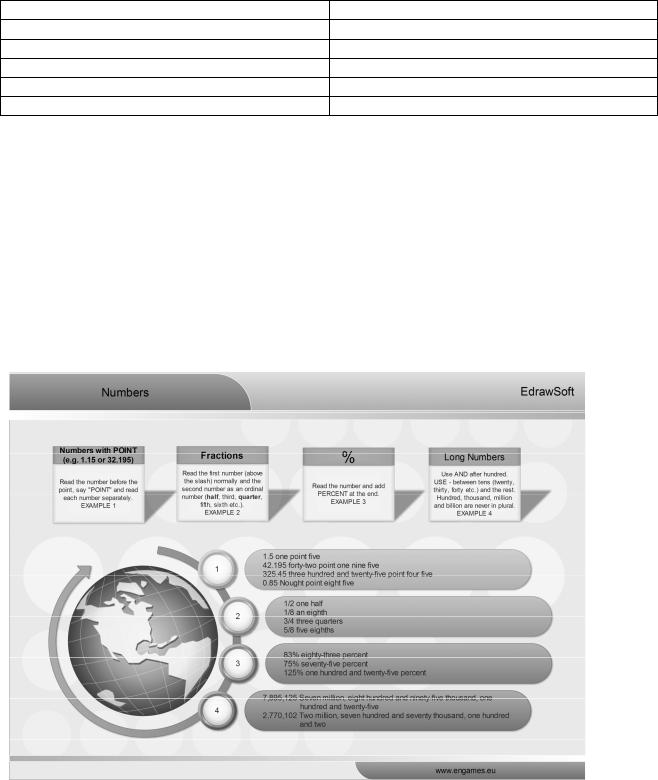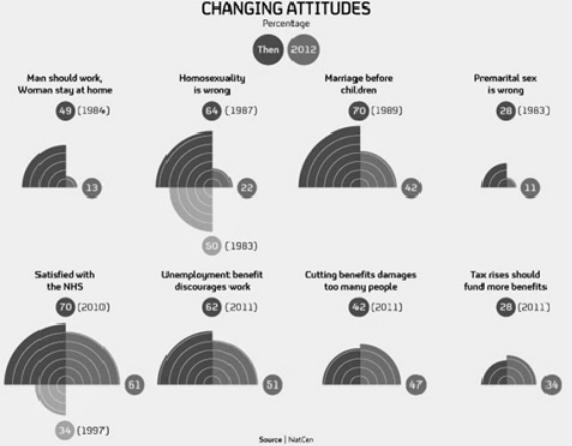
английский язык для общих целей
.pdf
Unit 3. Is it easy to be Young? 3.1. Generation Gap
Lead-in
What does it mean to be young? What do young people want?
What is generation gap? Does it really exist?
What are the causes of numerous misunderstandings between generations? How can parents and children overcome these conflicts?
Make a list of things you differ in with your parents/grandparents (worldview, clothes, tastes, etc). Do you argue about these things?
Reading and vocabulary
1. Check the words in the box.
●dependent ● useful ●bored ● lonely ● immature ● nervous ● active ● patient ● wise ● careful ● boring ● interesting ●mature ● independent ● shy ●careless ● strange
2. Before reading discuss following.
Do you follow your parents/grandparents advice?
Do you find young people sometimes too self-assured? What about you? In what spheres you think you are more competent than your parents/grandparents?
3. Read the title of the text. What do you think the text is about? Scan the text to check if your guesses were correct.
THE YOUNGER GENERATION KNOWS BEST
Old people are always saying that the young are not what they were. The same comment is made from generation to generation and it is always true. It has never been truer than it is today. The young are better educated. They have more money to spend and enjoy their freedom. They grow up more quickly and are not so dependant on their parents. They think more for themselves and do not so blindly accept the ideas of their elders. Every new generation is different from the one that preceded it. Today the difference is very marked indeed.
The old always assume that they know best for the simple reason that they have been around a little longer. They don’t like to feel that their values are being questioned or threatened. And this is precisely what the young are doing. They take leave to doubt that the older generation has created the best of all possible worlds. What they reject more than anything is conformity. Office hours, for instance, are nothing more than enforced slavery. Wouldn’t people work better if they were given complete freedom and responsibility? And what about clothing? Who said that all men in the world should wear dull grey suits and short haircuts? If we turn our minds to more serious matters, why have the older generation so often used violence to solve their problems? Why are they so unhappy and guilt-ridden in their personal lives, so obsessed with mean ambitions and the desire to amass more and more material possessions? Haven’t the old lost touch with all that is important in life?
These are not questions the older generation can shrug off lightly. Their record over the past fifty years or so hasn’t been exactly spotless. Traditionally, the young have turned to their elders for guidance. Today, the situation might be reversed. The old, if they are prepared to admit it, could learn a thing or two from their children. One of the biggest lessons they could learn is that enjoyment is not “sinful”. Enjoyment is a principle one could apply to all aspects of life. It is surely not wrong to enjoy your work and to enjoy your leisure. It is surely not wrong to live in the present rather than the past or future.
Notes
guilt-ridden – страдающий комплексом вины shrug off – сбрасывать со счетов
40

4. Read the text once again and mark the following statements as true (T) or false (F). T F
1)Old people are better educated than young people
2)Every new generation is different from the one that preceded it
3)Values of the older generation are questioned by the younger one
4)The young think all people should be different
5)The questions of the youth are easy to answer.
6)Only young people can learn from the old, never vice versa
Vocabulary Practice
1. Give the Russian equivalents to the following words and phrases:
●conformity ● enforced slavery ● complete freedom and responsibility ● mean ambitions ● blindly accept ● to precede ● guidance ● spotless ● sinful ●to shed restricting inhibitions ● material ● possessions.
2.Read the text once again and explain the words in bold. Translate the sentences with them
3.Match the words in italics from the text with their synonyms below.
1)refuse – _________________
2)duty – _______________
3)well-informed – ____________
4)ideals– ____________
5)cruelty– ____________
6)take for granted– ____________
7)supervision– ____________
8)agreement– ____________
9)to get rid of – ____________
10)age group– ____________
Read 10 expressions about the age. Translate into Russian.
She is in her early twenties (=20 – 23 years old)
She is in her thirties (=37 – 39 years old)
She just turned six.
Act your age (use this when an adult is being immature, acting like a child)
I’m not as young as I used to be.
He is no spring chicken (= he isn’t young)
She’ s wise beyond her years (she is young, but she has wisdom of an older person)
I’m having a senior moment (= being forgetful)
She lived to a ripe age (=a very old age)
I’m not over the hill yet (over the hill=an informal expression to say “old”)
Grammar spot
1.Go to Grammar Focus to study the theory about the adjective. You may also use
a)http://www.study.ru/support/handbook/adjective1.html (in Russian);
b)http://www.grammar-quizzes.com/adjectivesum.html
41

2. Study the mind map. What information is missing? Make up your own mind map.
3. Check yourself. Go to http://www.grammar-quizzes.com/adj-diagnostic.html 4.Use the correct form of adjective.
1) The information has never __________ than it is today (true/ truer).
2) Nowadays young people are _____ _______ than a few decades ago (more educated/ educated).
3)The old always assume that they know _______(best/better) because they have lived (long/longer)
4)One of the ________ (big/biggest) lessons the _______ (old/older) generation ca learn is to enjoy life .
5)Young people are ____________ (good/well) educated than young people
Improve your study skills  Developing speaking strategies
Developing speaking strategies
You probably want to be able to speak the foreign language you are learning. You want to
communicate with others and be understood. Read and apply our tips below and enhance your speaking skills.
SUGGESTIONS FOR IMPROVING YOUR SPEAKING SKILLS
•Speak, speak, speak! Practice is essential. Get in touch with native speakers or other foreign language learners and use the language in communication. It's okay to make mistakes.
•In your every day life, make up a dialogue in your head for the situation you are in: think about how you could order something to eat in English when you are at a restaurant; how you could ask someone for help when you are lost; how you can buy a ticket for the train when you plan to go somewhere, …
•Buy a small dictionary and carry it around with you. When you make up dialogues, use it to look up unknown words.
42
•When you are alone somewhere, for example in your room or under the shower, come up with sentences in the foreign language and speak them out loud.
•Learn poems that you like and speak them out loud.
•Expose yourself to the foreign language: listen to audio books, read books, watch films and videos, …
•Look for a tandem partner, i.e. a person who speaks the foreign language and wants to learn your native language. Meet him or her regularly and speak the foreign language.
•Use the computer and the internet to improve your speaking skills. For example you can listen to public podcasts in the foreign language, watch videos or chat with native speakers.
•Work on your pronunciation.
(From http://www.learning-english-online.net/skills/speaking/speaking-strategies/)
Speaking
1. Split into groups. Study counter-arguments to the text you have read and discuss the problems using both the arguments of the text and the counter-arguments that follow. Group A supports youth. Group B supports older generation.
•The young do not seek responsibility: they evade it.
•They are not interested in important questions; avoid involvement: e.g. major political issues; they lack noble ideas.
•They want expensive clothes, cars, etc. without working for them.
•The young should be grateful to the older generation. The older generation provides the young with good education, money to spend.
•The older generation fought World War 2, faced difficult, sometimes tragic problems. The young have had everything easy.
•The young cling to passing fashions: clothes, pop music, and rock music. The modern phenomenon is mass hysteria.
•Appearance of many young people is unpleasant: too long unkempt hair, dirty clothes, and unwashed bodies.
Communicating
Giving advice refers to when we tell other people what we think could help them. The most common way to give advice is by using the modal verb 'should'. There are also other forms including, 'ought to' and 'had better' which are more formal. You can also use the second conditional to give advice.
There are a number of formulas used when giving advice in English. Here are some of the most common:
•You should … .
•I don't think you should … .
•You ought to work less.
•You ought not to … .
•If I were you, I'd … ..
•If I were in your position, I'd … .
•If I were in your shoes, I'd …. .
•You had better … .
•You shouldn't … .
•Whatever you do, don't … .
( From http://esl.about.com/od/grammarstructures/a/f_advice.htm)
43

1.Tell the class what you think about the parent-child relationship. What should it be like?
What is the way to achieve a perfect mutual understanding?
Writing
Self study http://learnenglishteens.britishcouncil.org/skills/writing-skills-practice/informal- email
Write a short email to your friend about your relations with parents.
3.2. About Teenagers
Lead in
What is a teenager?
A teenager is....
•a person who can't remember to walk the dog but never forgets a phone number;
•someone who can hear his or her favorite singer 3 blocks away but not their mother calling from the next room;
•a whiz who can operate the latest computer without a lesson but can't make a bed;
•a connoisseur of 2 kinds of fine music -loud and very loud;
•an original thinker who is positive that his or her mother was never a teenager;
•a romantic who never falls in love more than once a week;
•a student who spends 12 minutes studying history and 12 hours studying for his or her driving license.
What definition do you like most? Which one describes you? Which suits to all teens best? How would you describe a teenager?
Reading and vocabulary Check the words in the box.
●reach the age● join the army ●develop ●work full time ●premise ● helpful ● constructive ●hardworking●caring ● preoccupation
44

1. Skim the text to grasp the general idea.
WHAT IS A TEENAGER?
Officially, of course, a teenager is anyone aged from thirteen to nineteen inclusive but most people would probably think first of all of a younger age group and exclude 18 and 19 year olds. After all, once you reach eighteen you can vote, get married without your parents permission and join the army, so it seems logical that you are considered as an adult rather than a child. At the other end of the scale, children are growing up and developing more quickly and these days 11 and 12 year olds would like to include themselves in the ‘teenager’ group. In actual fact they have their own group title now – ‘Pre-teens’ or sometimes ‘Between-agers’.
Without getting hung up on actual ages, perhaps what we really mean by ‘teenagers’ are people who are in the stage of their life when they are developing from children into adults. This is really a 20th century idea because in the old days children used to grow up much more quickly, with boys working full-time at the age of eleven or twelve and girls either working or helping out with younger children. In many parts of the world this is still the case.
Are teenagers a problem?
Parents and grandparents always seem to start from the premise that teenagers are in a special category when it comes to defining the human race. According to ‘the older generation’ teenagers are lazy, they wear ridiculous clothes and are appallingly rude to their betters and elders; they find it impossible to be polite, helpful, constructive, caring or hardworking. What’s more, they spend all their time listening to awful music (“It isn’t music, it’s a collection of horrendous noises!”) and watching unsuitable films. And all they ever think about is parties, drugs and sex. Well, that’s how the sto-
ry goes! But is it anywhere near the truth?
Actually, it seems to me to be quite the opposite of the truth. Teenagers spend a lot of time thinking about their work (studies), their families and friends and their hobbies. Sure, there are certain preoccupations such as clothes, money, how to behave in a certain situation, their bodies.
But isn’t it the same for most people? So what about the myth that all teenagers are rude, selfish, lazy and greedy? As far as I’m concerned, it’s nonsense. The vast majority of young people I meet are polite, friendly, open, interested and hard-working.
Do teenagers have problems?
You might as well ask “Do hens lay eggs?” Teenagers are human, so of course they have problems. And the problems aren’t very different from anyone else’s.
What’s going to happen at work/school tomorrow? Why does Dad like my sister better than me?
Am I too fat/skinny/tall/short etc.?
Does my boyfriend/girlfriend really like me? How can I afford to buy….?
Am I stupid?
There isn’t anyone alive in the world who hasn’t posed these questions. We usually do it when we turn out the light and lie down in bed at night and the answers aren’t very satisfactory! It’s true, of course, that sometimes teenagers have special problems. It is a difficult time because it is a period of transformation. It isn’t quite as bad as a chrysalis changing into a butterfly but it may seem like it – or even the other way round! It isn’t easy to grow up and the physical and emotional
45

changes are often confusing and worrying. But it’s my impression that most young people cope rather well.
2. Scan the text and fill in the table. |
|
Myths about teenagers |
Reality |
3. Read the text once again and complete the sentences.
1)By teenages we mean … .
2)In the old days children used to grow up … .
3)According to ‘the older generation’ teenagers … .
4)The author thinks that … .
5)There are certain preoccupations such as … .
6)The vast majority of young people … .
7)The author finds teenagers … .
8)It’s true, of course, that sometimes teenagers … because … .
Grammar spot
1. Go to Grammar Focus to revise the material about numerals.
46

2. Describe how social attitudes have changed in Great Britain.
Improve your study skills
Tips for writing a summary.
1)First, read the text or article to get a general idea of the subject matter as well as the author's attitude.
2)Then read through a second time to identify the main points – either paragraph by paragraph, or heading by heading / sub-heading.
Identify the topic sentences. These are usually the first sentences of each paragraph. They give the main idea for the paragraph (with the following sentences supporting this main idea). Also look for the concluding sentence in the paragraph, as this often summarises the paragraph.
3)Now write the main idea of each paragraph (or section) in one sentence. Use your own words, rather than the author's words. This is important: if you copy what the author has written, you risk writing too much!
4)Start pulling out key facts or findings from the text which support the author's main idea (or ideas). You may need to either summarise these (if there are a lot of them) or decide which are the most important or relevant.
However, if you are summarising a number of texts or articles, start to look for common themes running through all the texts. Are the texts broadly in agreement, or do they have different points of view or findings? Choose only a few supporting details to illustrate similarity or contrast.
5)When you have written all your sentences, you should be able to get a good overview of the whole text. This overview can be your introduction to your summary. In your introduction, you'll also need to give the author's name and the title of the text you are summarising.
47
Your summary should now look like this:
Text / author information
Your overview (the introduction)
The single sentences summarising the main ideas, with the key facts or figures that support the ideas.
6)At this point, you'll need to organise all the information in the most logical way. You might also have repeated ideas or details that you'll need to delete.
7)Don't forget to include linking words so your reader can easily follow your thoughts. This will help your summary flow better, and help you avoid writing short sentences without any connection between them.
Important points to remember
Don't copy the article. Instead, paraphrase. For example, “the author claims / states / suggests …”
If you quote directly from the original text, use quotation marks. (Minimise how often you do this.)
Don't give your opinion.
Edit what you write. Check your English grammar, spelling and punctuation mistakes.
(From http://www.english-at-home.com/business/how-to-write-a-summary/)
Writing |
|
|
1. Make up a summary of the text. Use the following phrases. |
|
|
The article is headlined…. |
– Статья называется… |
|
The headline of the article |
– Название статьи, которую я прочитал… |
|
I have read is… |
|
|
The author of the article is… |
– Автор статьи… |
|
The article is written by… . |
– Статья написана… |
|
It's published in… |
– Она опубликована… |
|
It's printed in… |
– Она опубликована… |
|
It's printed in… |
– Она напечатана… |
|
The main idea of the article is… |
– Основная мысль этой статьи… |
|
The article is about… |
– Статья о… |
|
The article is devoted to… |
– Статья посвящена… |
|
The article deals with…. |
– Статья связана с … |
|
The article touches upon…. |
– Статья затрагивает… |
|
The purpose of the article is |
– Цель статьи – ознакомить |
|
to give the reader some information on… |
читателя с … |
|
The aim of the article is to provide |
– Цель статьи ознакомить |
|
the reader with some material |
читателя с материалами/данными о… |
|
(data) on…. |
|
|
The author starts by telling the reader that |
– В начале статьи автор пишет … |
|
The author writes (states, stresses, thinks, |
– Автор пишет, (утверждает, |
|
points out) that … |
подчеркивает, полагает, |
выделяет), |
|
что… |
|
The article describes … |
– Статья описывает … |
|
According to the text ... |
– Согласно тексту… |
|
Further the author reports (says)… |
– Далее автор сообщает… |
|
It is important to note (stress, underline)… |
– Важно отметить, (подчеркнуть)… |
|
In conclusion…. |
– В заключение… |
|
The author comes to the conclusion |
– Автор приходит к |
заключению, |
that… |
что… |
|
48
Speaking
Discuss the following.
1)Should parents restrict their children freedom? Do you think teenagers have too much freedom in our country?
2)In Russia you may see many teenagers in the streets late at nights? What are they doing there? Is it safe?
3)Sometimes teenagers find it difficult to communicate with their parents. Why? Who should help teenagers to solve the problems? Could parents be helpful? How should parents communicate with their teenage children? Should they try to share their interests, pop music for instance?
4)Would you agree that these are some of the important problems of teenagers? “Who am I”, “I’m bored”, “They don’t understand me”, “People are laughing at me”, “I don’t know what to do”, “I haven’t any good friends”.
5)Some teenagers try hard to distinguish themselves by wearing unusual clothes, or having unusual habits. On the other hand, some teenagers tend to unification wearing similar clothes; having similar, following similar behavioural patterns habits. Give examples.
6)Many teenagers are ready to take part in different protest actions. Why? Are they really interested in politics? What are they protesting against?
7)Are there any political organizations for teenagers in Russia?
Project work.
Surf the Internet to find material about youth organizations in Russia and abroad. Make presentations. Discuss.
3.3. The Problem of Self-Realization
Lead in
What is self-realization? What is necessary for a person to realize him/herself? Is it possible to realize oneself nowadays?
Do you know any institutions that might help young peoples to develop their talents and make good use of their spare time ?
Did you attend any vocational classes (musical, sport, dancing, chess, etc.) when you were at school?
Reading
1. Scan the text and point out the activities teenagers are engaged in.
Working teens
Name: Sarah Williams Age: 18
Job: Play Scheme Assistant
Hours: 38 per week in the summer holidays Pay: $ 6. 50 per hour
“I love working with children and I want to become a teacher after university. Working on a play scheme is fun and good work experience. I don’t need the money as my parents give me a good allowance of $100 a month. I work for 6 weeks during the summer. About 80 children come to the Youth Centre every day. In the Centre there are 6 Assistants like me, and a Play Leader. We prepare activities like painting, drawing and crafts. We also organize games in the afternoon. This year it is my responsibility to take children on a trip to the zoo.”
49
